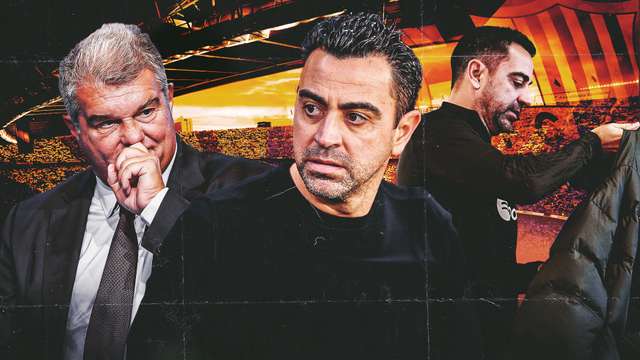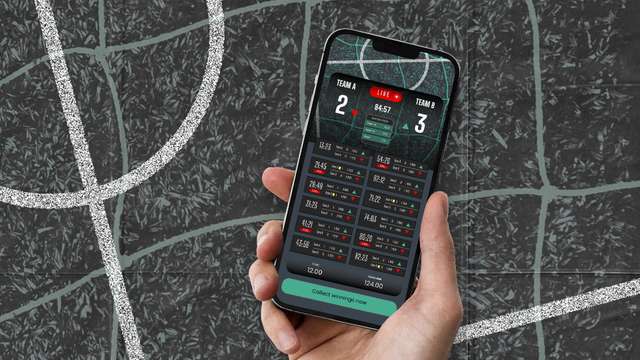Samuel Eto’o’s response to El Hadji Diouf recently over who Africa’s greatest ever player is was as brazen as a rebuttal could be. In a sense, it seemed like the Cameroon icon had had enough of the lingering debate and felt the need to make a statement himself.
"None of them [Diouf and Didier Drogba] can come and say that they were at my level or better, and it's not the fact that I say it, it's a fact, it's something that is there,” a fortnight Eto’o asserted. “I wanted to be number one and I have been throughout my career.”
In truth, it’s hard to argue with the Barcelona icon whose longevity is unrivaled. He seemed to be around for a very long time and lived up to his billing. Having debuted at the 1998 World Cup, he played in three more finals in 2002, 2010 and 2014, equalling legendary Cameroon captain Rigobert Song and Jacques Songo'o as Africans to have participated at the global showpiece four times.
Admittedly, the different iterations of Eto’o’s Indomitable Lions didn’t pull up trees at the spectacle, still, it remains commendable that the forward stayed relevant for so many years to match his compatriots’ feats.
He’d been a mainstay in the Golden Generation of the early 2000s that won two Africa Cup of Nations titles at the start of the millennium, and nearly became the only African nation to win the now-abolished Confederations Cup, only to fall to France in the decider.
Eto’o was by no means an onlooker in those competitions, scoring four times en route to success in 2000 and upsetting Brazil in 2003. The former was prescient in that it began a beautiful story at Afcon that ended with the frontman eclipsing Laurent Pokou’s long-standing 14-goal haul at the finals. The Ivory Coast icon’s record stood since 1970, but Eto’o supplanted him in 2008 and eventually ended with 18 strikes to his name.
Throw in an Olympic Gold medal into the mix, and you’ve got a player who nearly won it all. Interestingly, the forward scored only once at the 2000 Games, still, the significance was weighty as it saw the young Lions peg Spain back to 2-2 in the final having trailed 2-0 at half-time.
At club level, the magnificent striker thrived in nearly every club in his stretchy prime: Real Mallorca, Barcelona and Inter Milan.
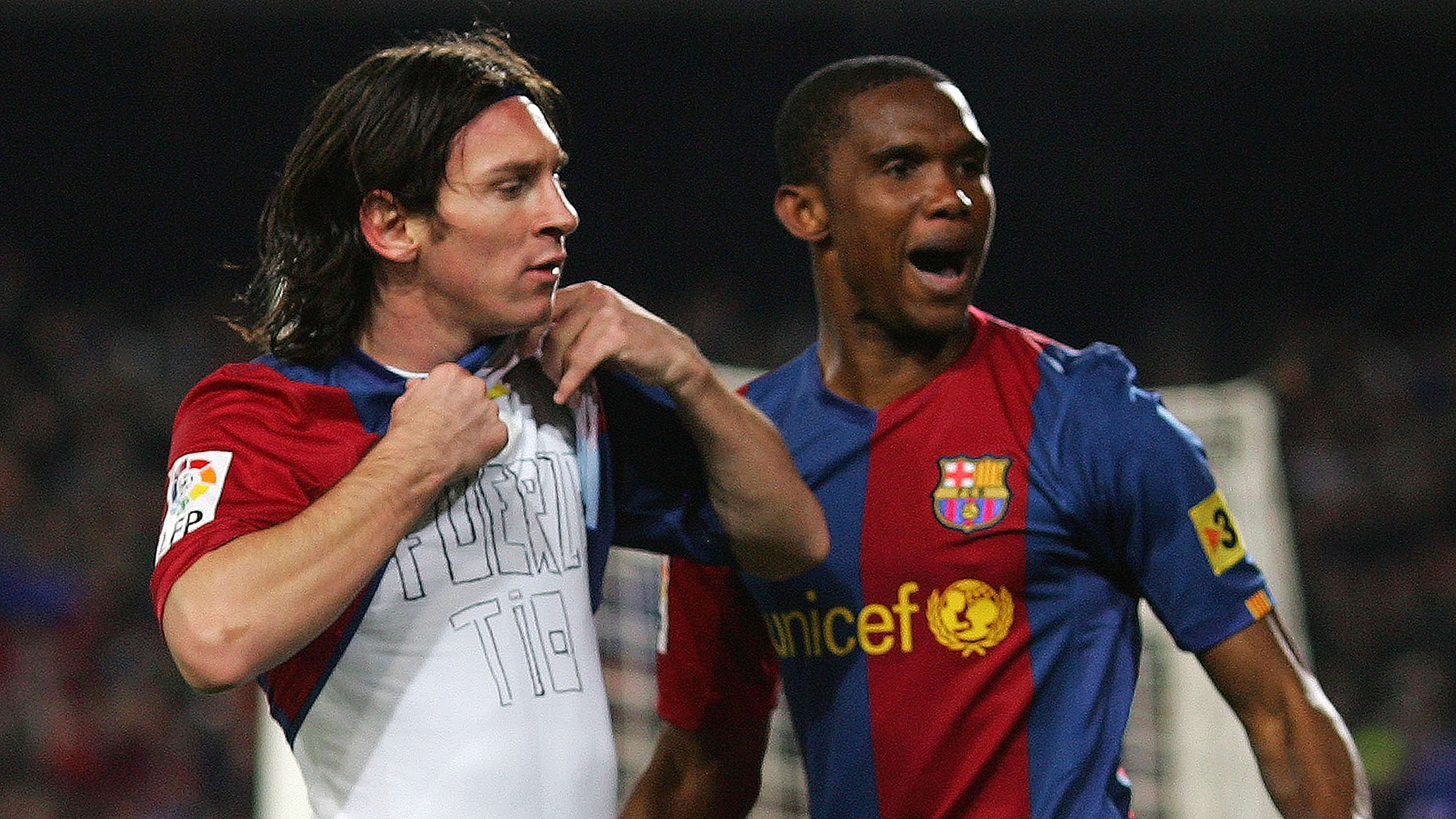 Getty Images
Getty Images
He helped unfancied Mallorca win their first Copa Del Rey title in 2002/03, netting twice in a 3-0 final success over Recreativo de Huelva to take his tally to five. To date, that 20003 success remains the club’s only major title in their 104-year history.
Unsurprisingly, Eto’o’s tally of 54 goals makes him the club’s all-time leading goalscorer.
At Barcelona, he was instrumental in the Catalan giants winning two Champions League titles in 2006 and 2009. He netted the equalizer in a 2-1 win over Arsenal in Paris and scored the opener against Manchester United three years later which ended 2-0.
The former represented the Catalan side’s first success on the continent since their European Cup triumph in 1992. The latter was a historic treble, the first in Europe since the turn of the millennium.
Eto’o then became the only man to win back-to-back trebles having switched to Inter in summer 2009. It ended the Nerazzurri’s 35-year wait to rule the continent and was Italian football’s first treble. The Cameroon star may not have been the team’s main forward, however, he finished the campaign with 16 goals.
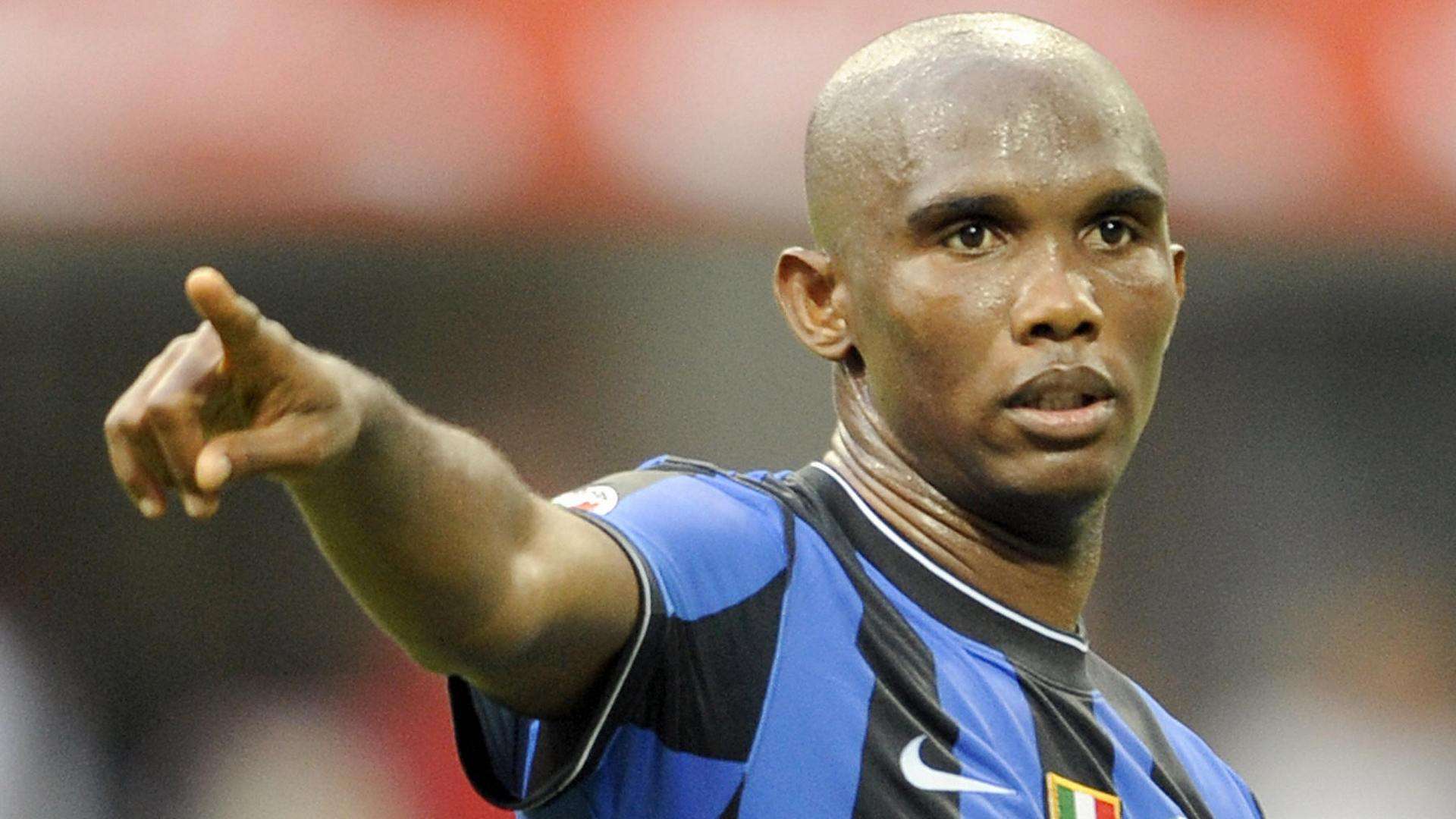 GettyImages
GettyImages
The following season, as Diego Milito struggled for form and fitness, he assumed responsibility to hit 37 goals in all competitions, his highest tally in a campaign.
2010/11 was the final year in his prime, although he enjoyed a fairly successful 2013/14 in the Premier League with Chelsea. There was a well-taken goal against Arsenal in a 6-0 thrashing and a hat-trick against Man United, two teams he’d previously punished in Europe’s premier club competition.
He was 33 at the time, it’s without question Cameroon’s all-time leading scorer would have wreaked more havoc had he played in the Prem in his prime.
What made Eto’o special wasn’t his goalscoring ability alone, but his all-round play which showed an impeccable intelligence of movement and underrated link-up play. He was a great goalscorer, scorer of great goals and a good team player.
Yaya Toure’s influence in England saw him transform Manchester City from challengers to winners, however, alongside the Cameroon great, his hugely impressive feats pale in comparison.
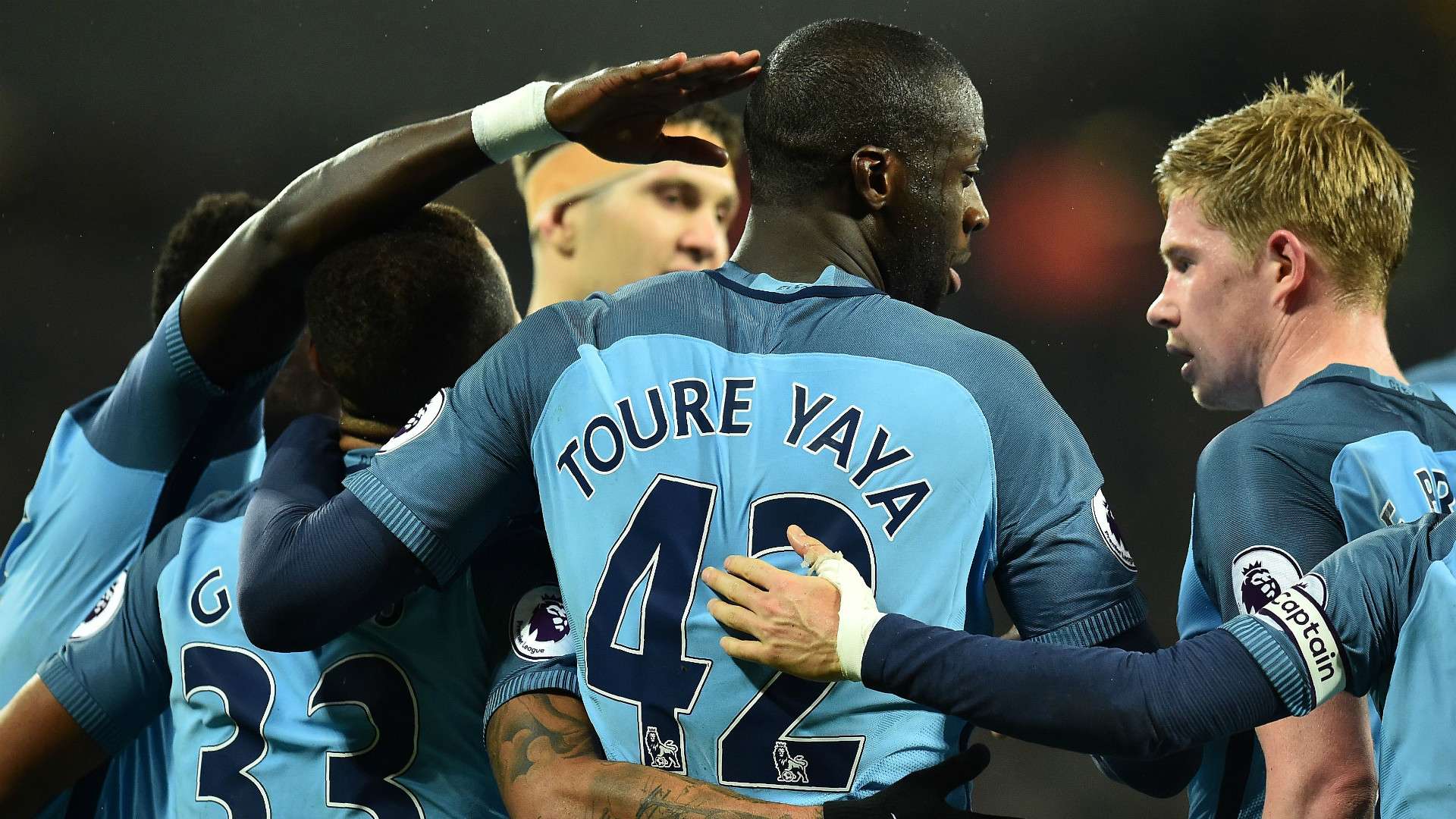 Getty Images
Getty Images
Having scored the goal to end the Citizens’ 35-year wait for a major trophy in 2011, the Ivorian then played an important part in their first Premier League win in 2011/12.
However, his peak certainly came in 13/14, when he rivaled an extraordinary Luis Suarez for the PFA Players’ Player of the Year award having matched Frank Lampard as the only midfielder to score 20 goals or higher in a Premier League season.
At the time, arguably no one could touch the dynamic midfielder in European football, and it’s easy to understand why.
Toure is the only one to be named African Footballer of the Year four times in a row, a succession of wins that demonstrate just how amazing he played in those transformative years in Manchester.
Nevertheless, it’s hard to look beyond Eto’o in this rivalry. Both share the most POTY wins on the continent, but the Cameroon legend’s career and elongated prime surely trump the Ivorian’s, and many will argue both greats are wide apart in this debate.
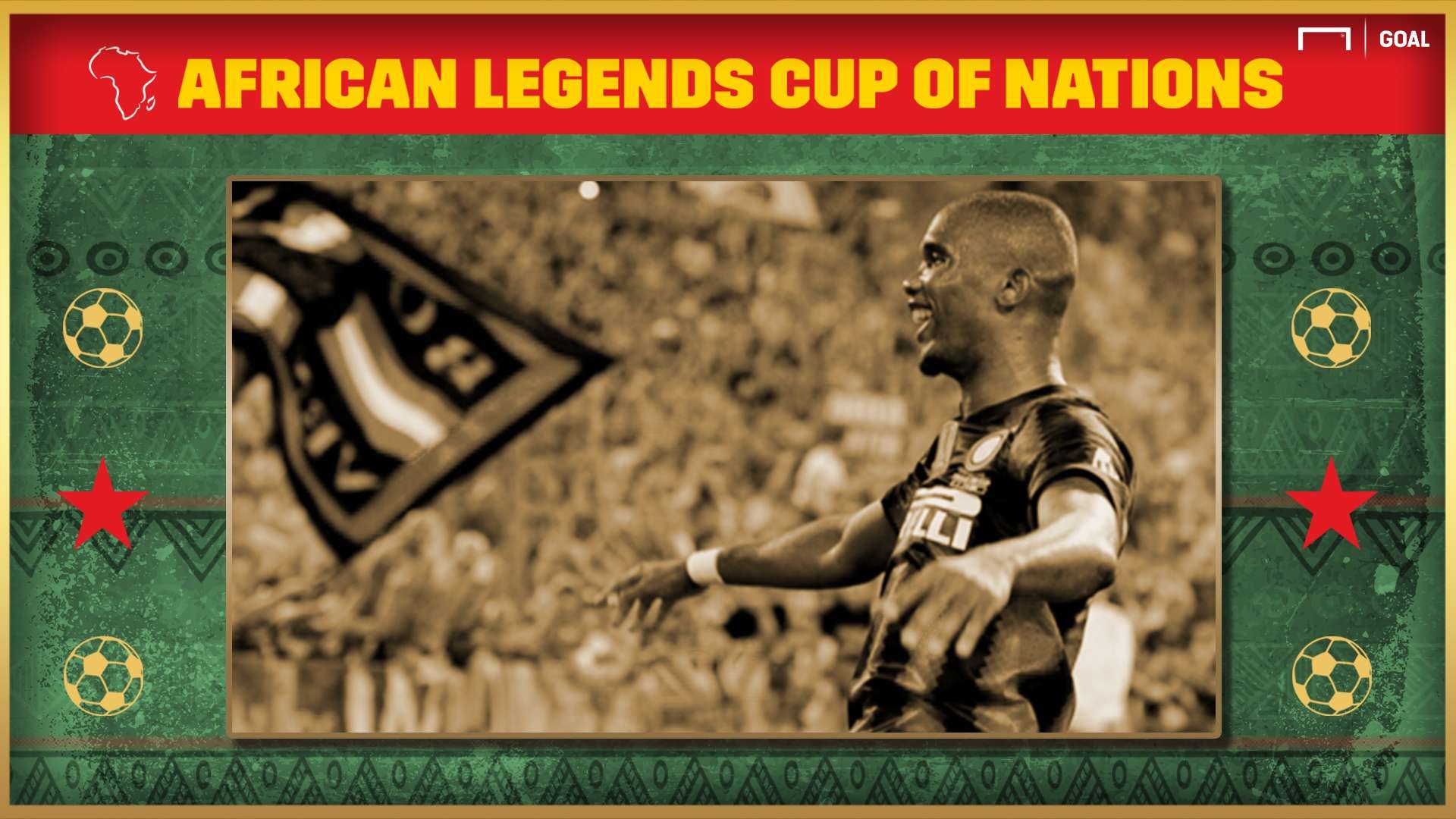
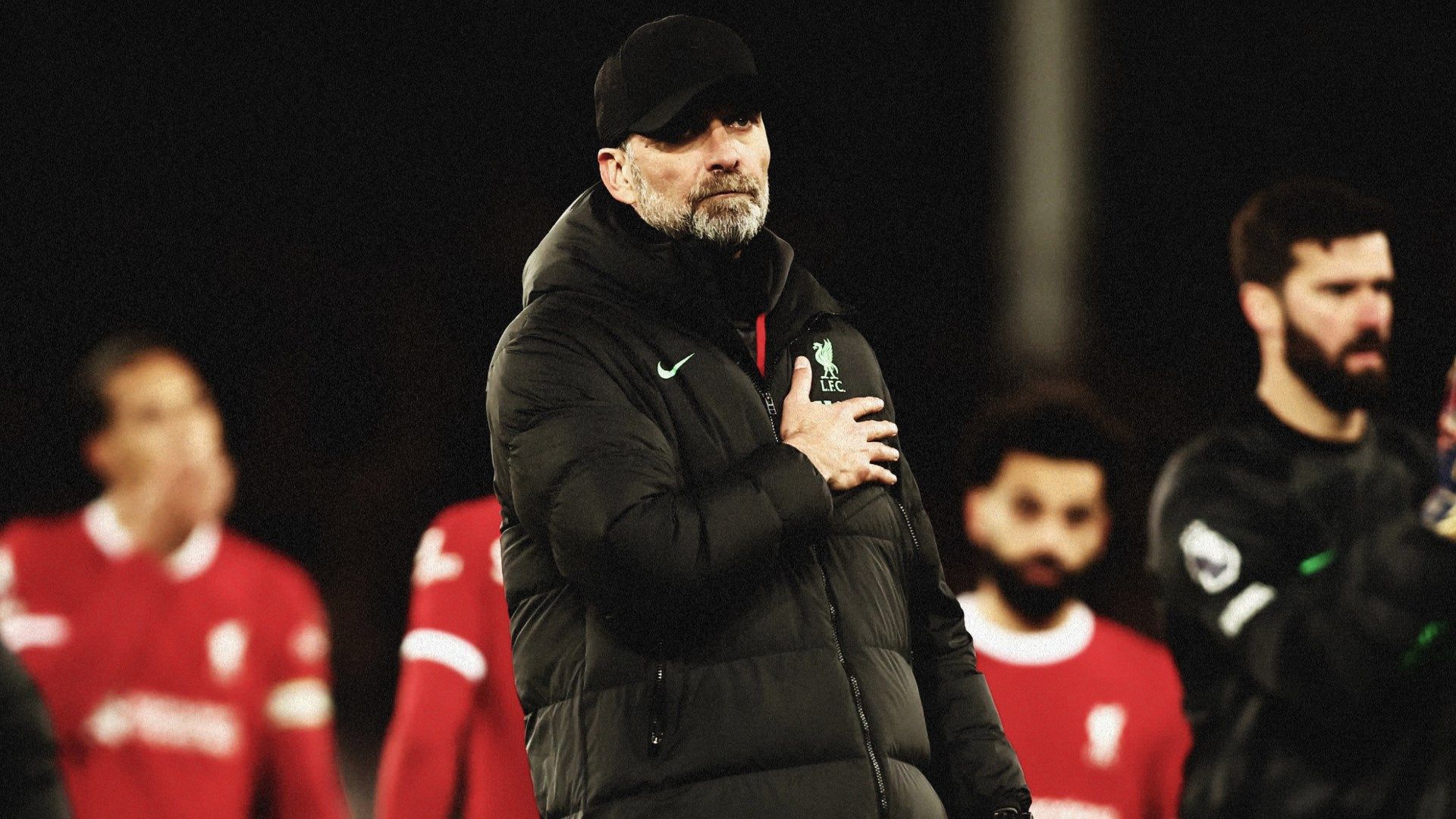.jpg?auto=webp&format=pjpg&width=640&quality=60)
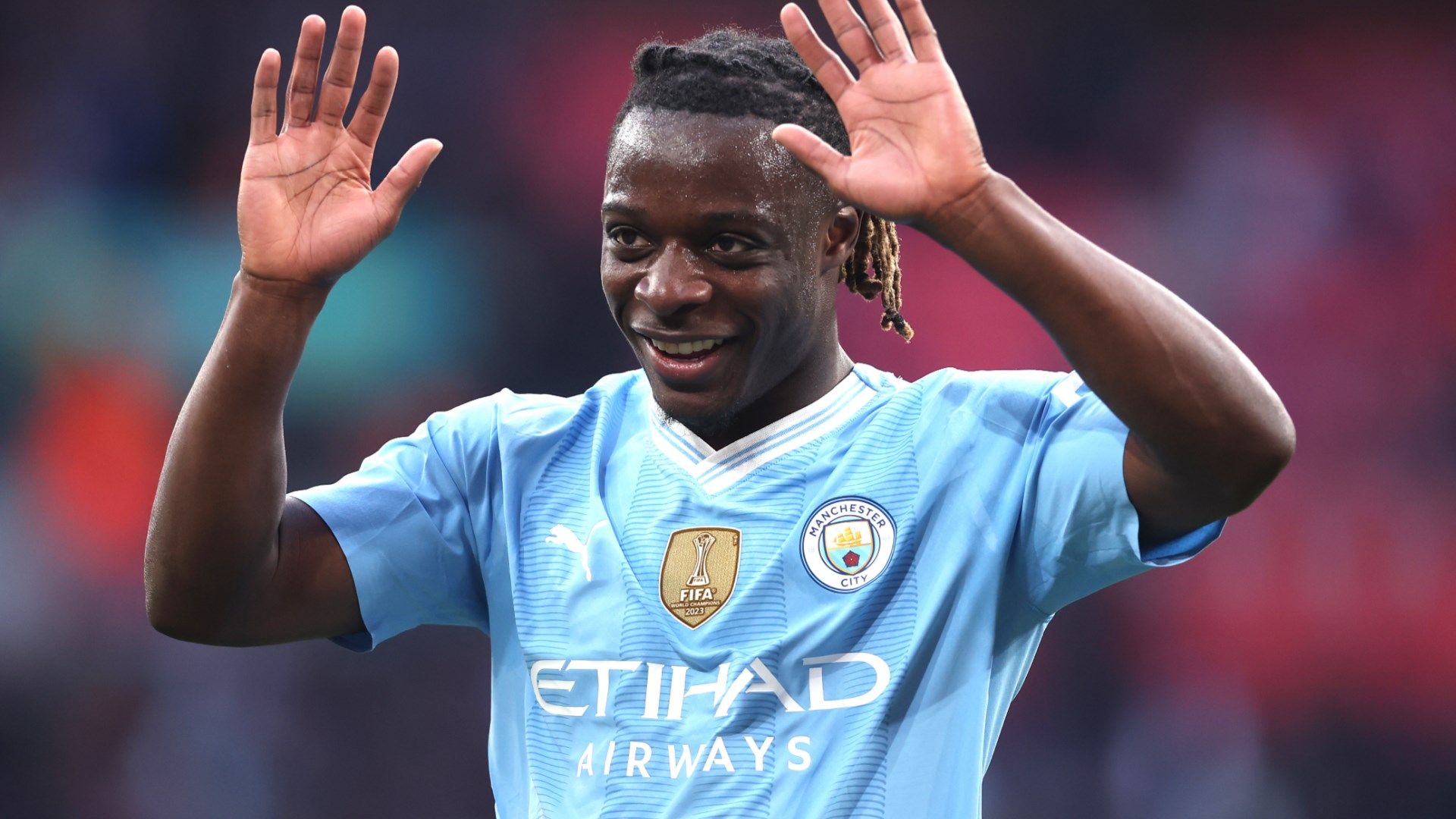.jpg?auto=webp&format=pjpg&width=640&quality=60)
